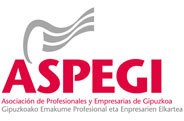GIPUZKOA COOPERA programme with the Women for Africa Foundation, DIPC, ASPEGI and CFM.

Representatives of the different institutions that form part of Gipuzkoa Coopera
The Provincial Council is promoting this project aimed at African women researchers and entrepreneurs to visit Gipuzkoa to broaden their knowledge and then pass it on.
The Department of Culture and International Cooperation of the Provincial Council of Gipuzkoa, in collaboration with Women for Africa, Azti Tecnalia, ASPEGI, CFM and DIPC come together for the second year in Gipuzkoa Coopera.
This project has two fundamental axes, on the one hand, to break with the discourse and the unique vision that we have about Africa, since it is a continent where excellence, science, research and the development of knowledge are also present and, on the other hand, to give African women an opportunity, also the source and pillar of that excellence.
This collaboration has been maintained for two years with the aim of facilitating the professional growth of African women scientists and entrepreneurs through temporary residencies in centres of reference in Gipuzkoa. Within the framework of this project, both CFM and DIPC will host an African researcher respectively in the course of the next year 2020, so that they can broaden their knowledge and then apply it in their country of origin.
The press conference was attended by the International Cooperation Deputy Denis Itxaso, María Teresa Fernández de la Vega, President of Women for Africa, Nerea Ibañez, President of ASPEGI, Daniel Sánchez Director of CFM, Yayi Bayam Diouf a Senegalese woman from the field of artisanal fishing who are part of the association and the African Master student of the LEARN AFRICA project Miss Harriet. Kumi Ghanaian.the latter, the CFM also welcomes African students who have been worthy of the scholarship Learn Africa also granted by the Foundation Women for Africa, contributing to defray their academic stay to attend the academic training offered by the aforementioned technology centers.
Harriet Kumi recently joined Gabriel Molina’s quantum nanophotonics laboratory at the CFM, where he is developing the UPV/EHU’s nanoscience master project. Her esatncia and her studies have been financed entirely by the CFM and the DIPC through the collaboration that arose in parallel with the foundation of Women for Africa, in the program “Learn Africa”.
Besides Gipuzkoa cooperates, it is materialized in the project YEMAYÁ Sareak – The Networks of Yemayá directed to women of the Senegalese fishing sector. The project will be carried out both in Senegal and Gipuzkoa, through collaboration with ASPEGI and AZTI-Teknalia, as it includes a first phase of identification of needs on the ground and a second phase of implementation of the action plan both in Senegal and Gipuzkoa.
The Association of Professionals and Businesswomen of Gipuzkoa (ASPEGI) is a non-profit association that was born in 1998 with the aim of contributing to achieving equal opportunities and rights in the economic, social and labour fields, between men and between women. ASPEGI accumulates an important trajectory in the promotion of female entrepreneurship with the aim of accompanying and strengthening the processes of creation of companies promoted by women in any type of activity through a wide range of services.
The Women for Africa Foundation (MxA) is a non-profit organisation whose objective is to promote development in Africa through its women. MxA promotes projects in the areas of leadership, education and research, health, economic development and culture and all of this in the key of equality, with the conviction that equality is the most powerful factor of social transformation. For the Women for Africa Foundation “knowledge is today the basis on which development and progress are based. Scientific and technical research must therefore occupy a fundamental space in the social, economic and productive fabric of our societies. Science, research and innovation are needed to meet the challenge that the fair and respectful exploitation of Africa’s wealth and the balanced distribution of its income among all its citizens represent today. And women must and want to be on that path.








